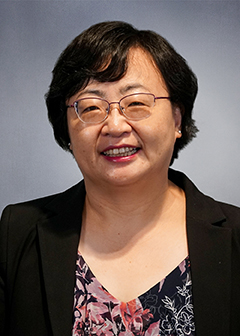
D. Bradley McWilliams Chair
Professor
Department of Health Data Science and Artificial Intelligence
Contact
[email protected] | 713-500-3924
Hongfang Liu, PhD is a Professor at McWilliams School of Biomedical Informatics and serves as Vice President of Learning Health System at UTHealth Houston. She leads the research in the Center for Translational AI Excellence and Applications in Medicine (TEAM-AI). Before coming to McWilliams in 2023, Dr. Liu was the Dr. Richard F. Emslander Professor of Biomedical Informatics at Mayo Clinic and directed the Biomedical Informatics program at the Mayo Clinic Center for Clinical and Translational Science and led Cancer Data Science and Informatics of Mayo Clinic Comprehensive Cancer Center.
She has a broad range of informatics expertise including artificial intelligence and informatics in healthcare, computational biology and bioinformatics, and biomedical data science. Her research has been recognized through several awards, including the NSF CAREER Award for biomedical text mining, the NCATS Innovation Award for open health natural language processing, the AMIA Donald Lindberg Award in Informatics Innovation for context-aware artificial intelligence, and the CPRIT Established Investigator Recruitment Award. Dr. Liu’s research accomplishments have been recently featured in Mayo Clinic Advancing The Science, a CTSA Blog, and at UTHealth Houston. She has been active in several professional organizations including AMIA, IEEE, and ACM and currently a fellow in ACMI and IAHSI.
Dr. Liu would like to focus her research in advancing translational science and bringing novel health data science, informatics, and AI solutions to empower real-world data-driven research. She would like to develop those tools and resources under the “RITE-FAIR” principle (reproducible, implementable, transparent, and explainable – findable, accessible, interoperable, and reusable). “It is a critical time for researchers and scientists in the space of health data science, artificial intelligence, and informatics giving the huge potential of leveraging real-world data to advance biomedical science and transform health care.” However, she emphasizes that “such potential heavily depends on our ability to ensure scientific rigor, ethical, transparent with the goal of advancing data-driven science and achieving better health for everyone through people-centric and value-based innovations”.